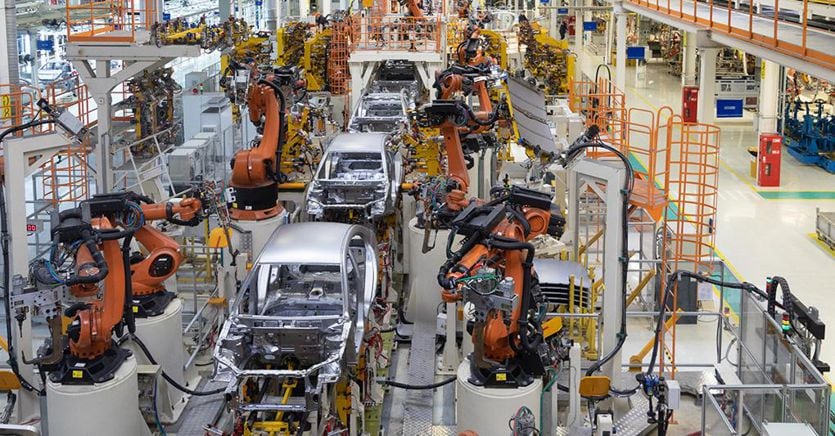“Safe, clean and affordable.” Adjectives that Carlos Tavares, the number one of Stellantis, pronounced several times, on the occasion of the Paris Motor Show last week. And they are important words because they give the exact measure of the situation in the world of cars whose existence is undeniably at risk. And there is no talk of change, of energy transition but of the existence of factories and products and of the limitation of individual mobility rights.
Tavares’ slogan «Safe, Secure and Affordable», proclaimed in a salon where the presence of Chinese brands was enormous, from BYD to Great Wall, recalls the famous «Electric, autonomous and shared» of the past years. This paradigm later turned out to be fallacious. The car has become electric and will be totally electric by virtue of an EU tax that did not want to take into account technological neutrality to address the issue of climate-altering emissions throughout its life cycle. A theme repeated several times by Luca de Meo, number one in the Renault group. Of course, the car has not become autonomous but only assisted with peace of mind by the gurus, even our own, who prophesied the advent of the autorobots in 2020 (almost three years ago, and we do not think they have been seen). As for shared cars, the judgment is suspended: the pandemic has hit this four-wheeled mobility system hard, which needs a lot of money to stand up (it is no coincidence that we have seen mergers in the sector) and vehicles designed for sharing. .
The key theme therefore remains the freedom of movement, especially of the middle class, the one that cannot afford an electric (fantastic to drive always and in any case, it must be reiterated), also because perhaps even though being able to buy it or acquire it with formulas other than ownership it does not have a box that is a sine qua non for driving around with a lithium-ion car. It is no coincidence that Stellantis, announcing the exit from ACEA, the European association of manufacturers, launched the Freedom of Mobility Forum, to define the suitable solutions to promote the freedom of clean, safe and convenient mobility for the society that faces the climate emergency. In short, a move that strongly contrasts the excessive power of some ultra-environmentalist lobbies that have led the EU to make decisions on cars in an ideological and technologically non-neutral world, creating the conditions to pave the way for Chinese manufacturers, who with the simplification of ‘electric car, they have reduced, in the blink of an eye, the gap with the major European manufacturers going to oppose head-on to the enormous technological and financial capacity of the VW group. And it must be said that the Chinese manufacturers are launching aesthetically pleasing, technically original cars and also able to pass the EuroNcap crash tests with 5 stars. What are they missing, in addition to the construction refinement and road-going qualities of a high-ranking German electric? We need the prestige of brands. And Chinese brands have no reputation (and it takes years to build it, even paying platoons of car influencers on social networks). However, Chinese groups are large and rich and Western brands can buy them. Just think of Geely who controls Volvo, Polestar, Lotus and a nice piece of Mercedes. A difficult scenario in which, according to Tavares, it is essential that the EU protect its automotive players also to defend millions of jobs. And the best weapon is not protectionism but the push towards innovation: chemistry and software in the first place.
Finally, in Europe, policies to limit the use of cars, including the infamous Area B of Milan, have compressed market spaces, increasing costs and creating uncertainty. In Europe, according to Tavares, “policies are being made that are killing the future of mobility and EU governments must act to protect citizens’ freedom of movement.
«It is not possible – declared the CEO of Stellantis – to remain stuck in the dogma of the electric car for everyone, because it is too expensive. The dogmatic decision of the EU to sell only beverages from 2035 has unmanageable social consequences. Now is the time to be pragmatic ». What does this mean? It means that the car wants to relaunch its role as an essential instrument of individual freedom.
